|
Genres, Themes, Actors, and Directors:
- Billy Wilder Films
- Corruption
- Jan Sterling Films
- Journalists
- Kirk Douglas Films
- Media Spectacle
- Mining Towns
Response to Peary’s Review:
Peary writes that this “cynical Billy Wilder film” — which “attacks the American public” for “always [being] willing to exploit tragedy for personal gain” — is “extremely well made, brilliantly acted by Douglas, and, sadly, truthful”. He notes that “many people detest this depressing picture” — and while I can’t say I fall in that camp (it’s far too well made to detest), it sure is a helluva consistent downer. DVD Savant refers to it as a “blanket condemnation of humanity”, adding that “Wilder’s dark viewpoint is not only unrelenting, it’s unrelentingly unrelenting”. Based on a true story of a cave explorer named Floyd Collins, the screenplay — by Wilder, Walter Newman, and Lesser Samuels — builds this real-life tragedy up to satirically outlandish proportions; literally nobody is spared, not even Douglas’s seemingly clean-cut apprentice-photographer (Robert Arthur).
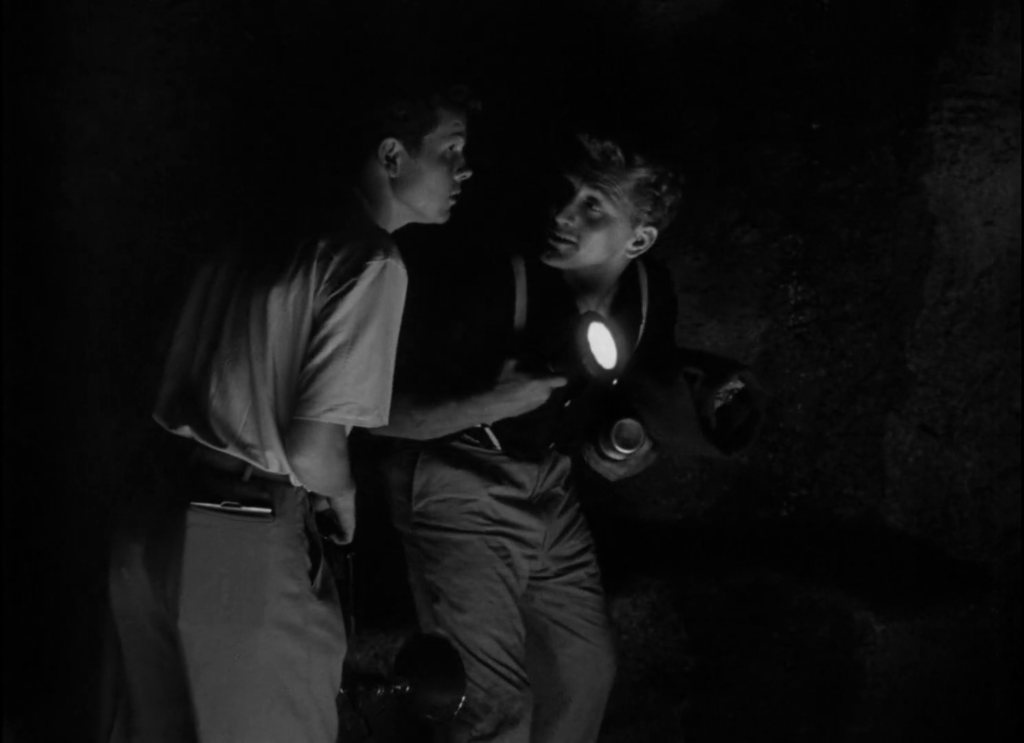
I enjoy Jan Sterling’s sullen performance as the buried man’s no-good wife (that scene with the scarf!):
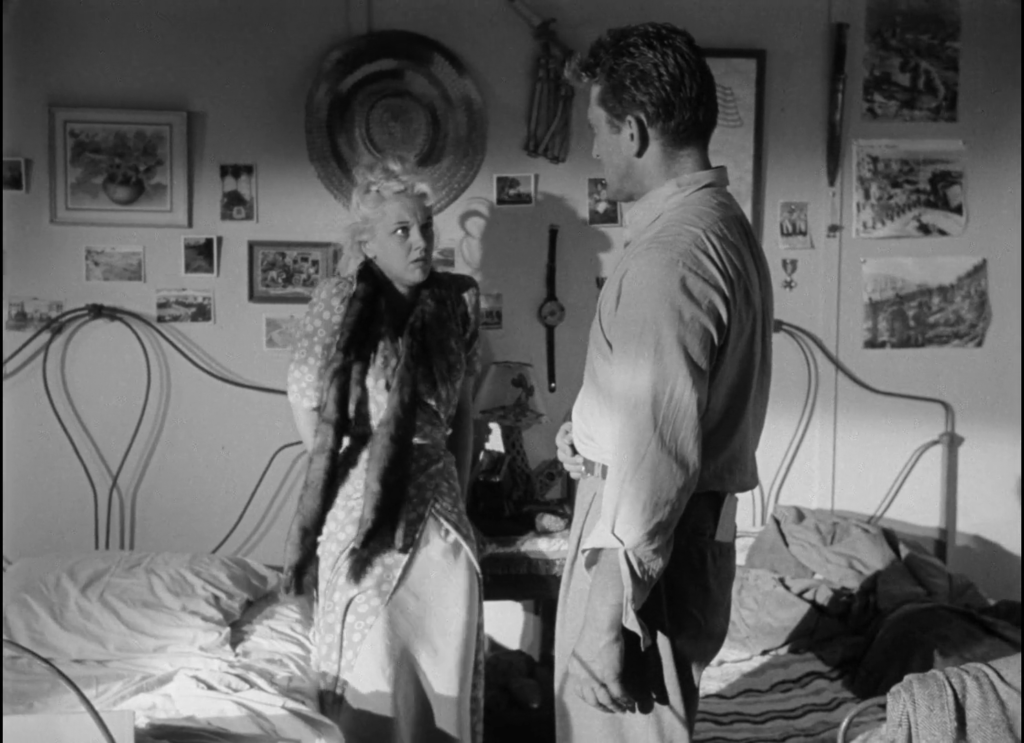
and Charles Lang’s cinematography is outstanding — but this is one classic I’ll happily leave behind now that I’ve been reminded of its technical brilliance.
Redeeming Qualities and Moments:
- Kirk Douglas as Chuck Tatum (nominated as one of the Best Actors of the Year in Alternate Oscars)
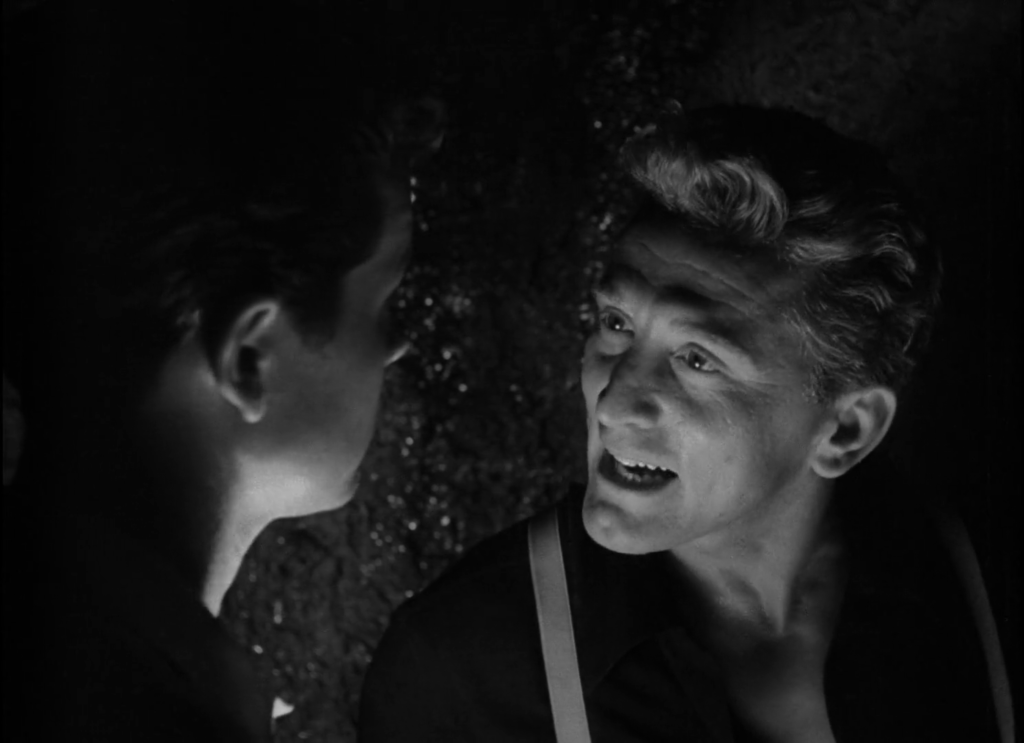
- Jan Sterling as Lorraine Minosa
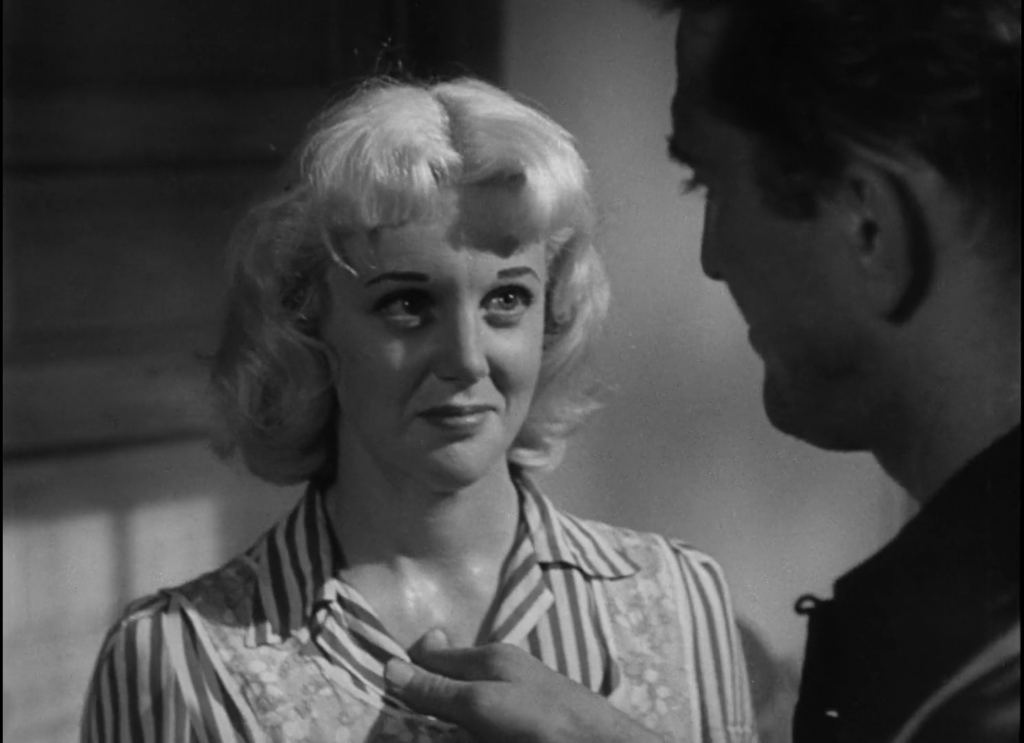
- Charles Lang’s cinematography
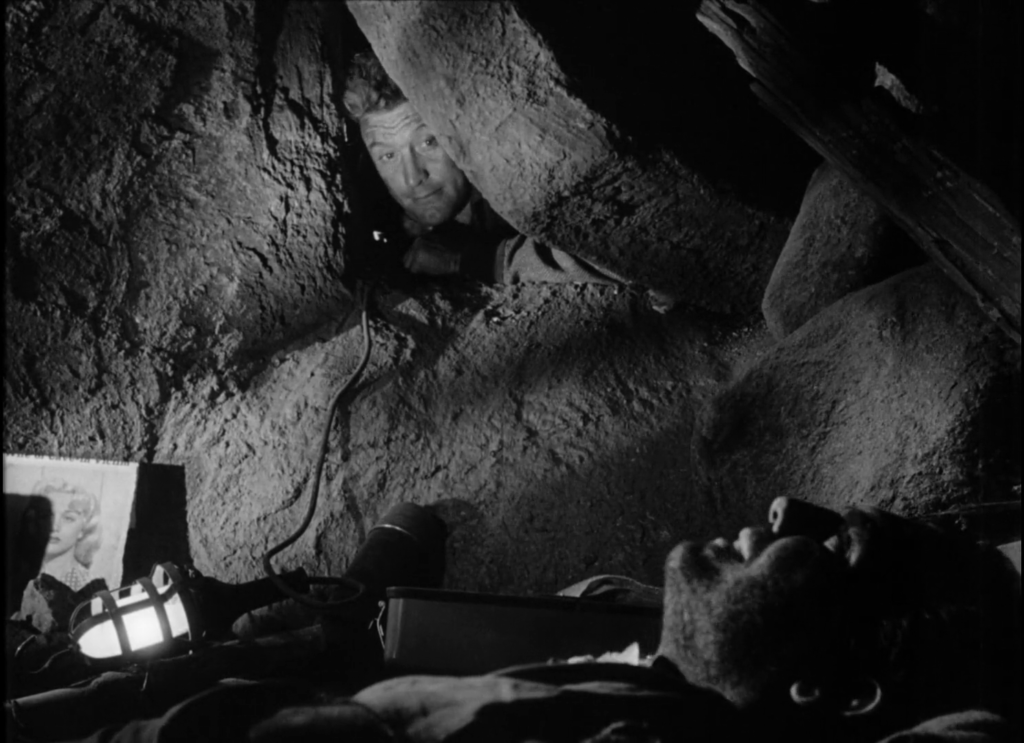
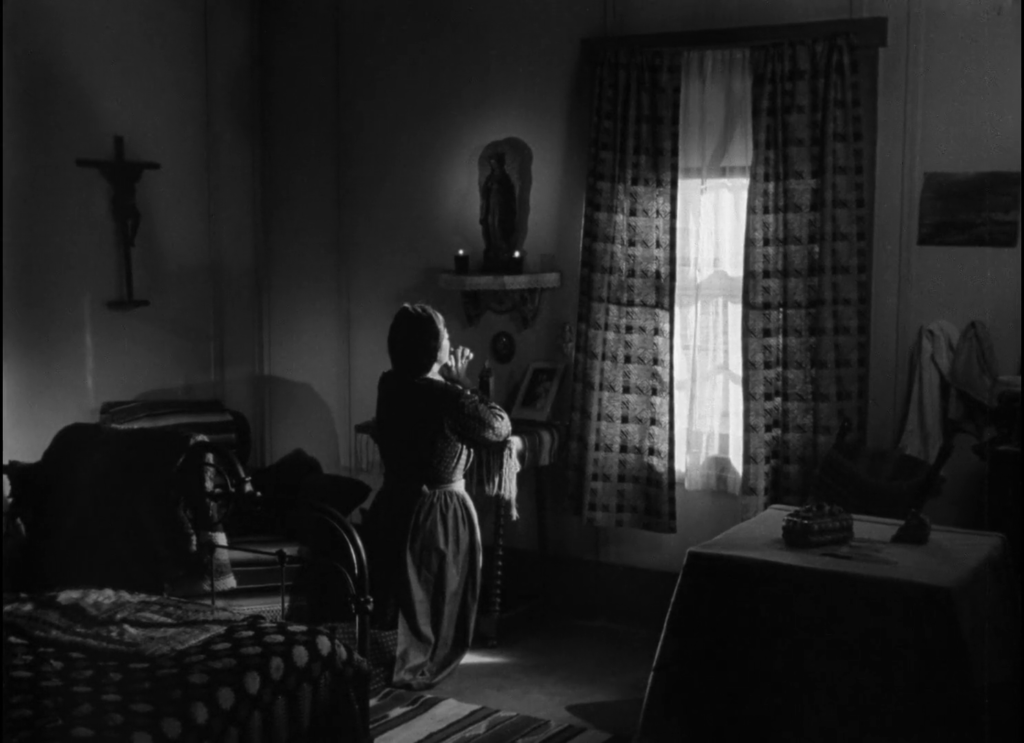
Must See?
Yes, as a harsh but powerful classic. Nominated as one of the Best Pictures of the Year in Alternate Oscars.
Categories
(Listed in 1001 Movies You Must See Before You Die)
Links:
|
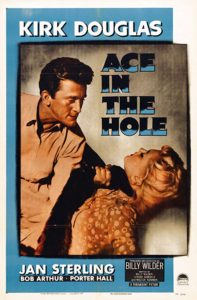






One thought on “Big Carnival, The / Ace in the Hole (1951)”
Not must-see. It’s true; this film is “unrelentingly unrelenting” – which, in itself, is not a reason to not promote it; ‘The Pawnbroker’ and others also fall into that category. Still, this film seems to go overboard in its harsh view of humanity, allowing almost no balance at all to off-set its dark vision. Enter at your own risk.
Wilder is said to have called this film “the runt of my litter” – and I tend to agree with him (if we’re talking about films he made while still in his prime, and if ‘runt’ is being defined as ‘an unwieldy, troublesome thing’).
For me, a large part of the problem here is Kirk Douglas (not among my favorite actors, though there are times I find him more bearable than others). From the moment we see his Chuck Tatum, we know he’s an unlikable guy. Wilder has unlikable guys in other films as leading characters (it’s a main ingredient for dramatic tension) but, as such, Tatum is over-the-top.
For example, in the first 15 minutes, Tatum has a scene in the Albuquerque newspaper office in which he goes on and on and on and on about Albuquerque *not* having the comforts and amenities of New York City. Even for an unlikable person, it’s too much. Granted, the writing is not Douglas’ fault, but that scene sets the tone of what’s to follow: a combination of over-writing with over-acting. There is almost no nuance in what Douglas plays.
There doesn’t seem to be any attempt at the idea that the situation here is an anomaly in journalism. So it becomes hard to sit with the fact that the film would like us to believe that *most* journalism is conducted in this “below the belt” fashion. I can imagine journalists in particular not being fond of this film.
Unlike other Wilder films like ‘The Lost Weekend’, ‘Double Indemnity’, ‘Sunset Boulevard’, etc., the main character isn’t even given a strong counter-character that would bring relief to the misanthropic view. Instead, Douglas is given Jan Sterling, an otherwise good actress who nevertheless is here playing a woman as black-hearted as he is.
(The only reprieve we get is in the person of Porter Hall, who plays Douglas’ local newspaper editor. Alas, his role is very minor.)
‘Ace’ makes a particularly perverse point when the setting’s atmosphere becomes a literal carnival – complete with ferris wheel and other rides, highlighting the idea that mob mentality in a non-political, non-human rights situation (and, in this film, that’s thousands of people) will always prefer the madness of spectacle over the life or lives of those who are trapped in something potentially tragic. In this film, there appears to be only a handful of people who care about whether or not Leo gets out alive.
The script’s most gripping element doesn’t arrive until the last 20 minutes – which, thankfully, leads to Tatum’s comeuppance.
Ultimately, it’s not that the film’s theme is invalid. It just seems needlessly exaggerated.